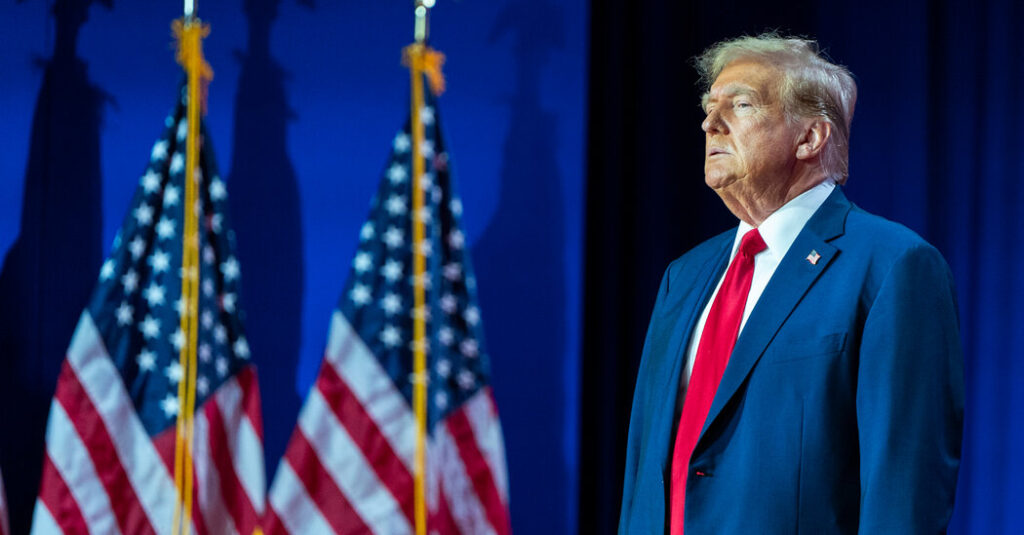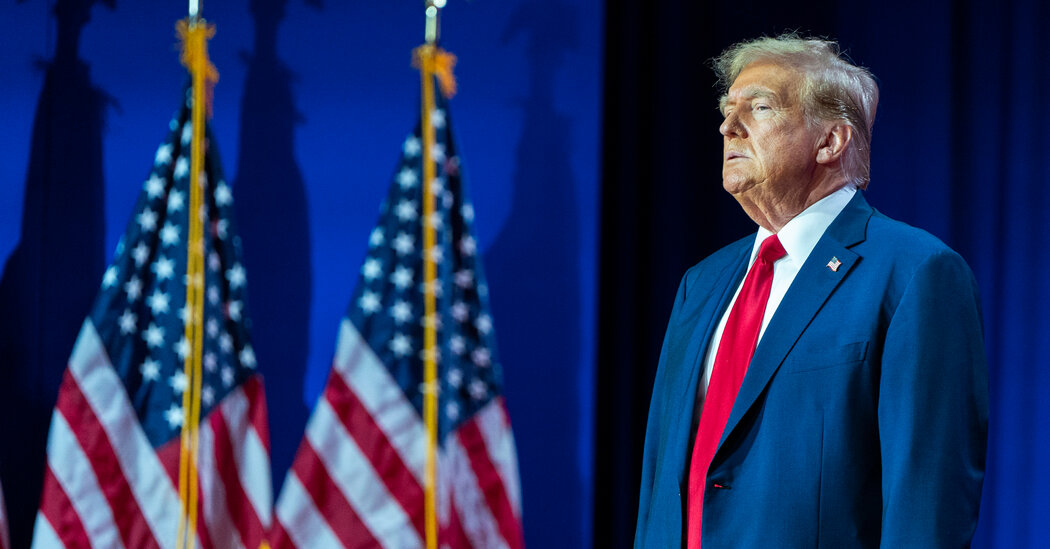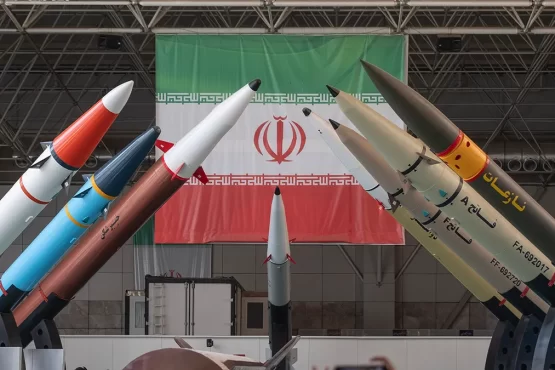President-elect Donald Trump announced plans Monday to impose substantial new tariffs on goods from Mexico, Canada, and China immediately upon taking office, significantly escalating his stance on international trade and border security.
In a series of posts on his Truth Social platform, Trump declared he would sign executive orders on January 20 implementing a 25% tariff on all Mexican and Canadian imports, while adding 10% to existing tariffs on Chinese goods. The president-elect linked the aggressive trade measures to concerns over illegal immigration, drug trafficking, and what he termed an “Invasion of our Country.”

“On January 20th, as one of my many first Executive Orders, I will sign all necessary documents to charge Mexico and Canada a 25% Tariff on ALL products coming into the United States, and its ridiculous Open Borders,” Trump wrote, indicating the measures would remain until drug trafficking, particularly fentanyl, and illegal immigration are curtailed.
The proposed tariffs would mark an unprecedented shift in U.S. trade relations with its two largest trading partners under the United States-Mexico-Canada Agreement (USMCA), which replaced NAFTA during Trump’s first term. The move could potentially trigger retaliatory measures and legal challenges under international trade agreements.
Regarding China, Trump cited failed negotiations over drug trafficking concerns, particularly fentanyl. He claimed Chinese officials had previously promised to execute drug dealers trafficking substances to the United States but “never followed through.” The additional 10% tariff would compound existing trade tensions between the world’s two largest economies.
The announcement represents a significant expansion of Trump’s first-term trade policies, which included targeted tariffs on specific goods and resulted in prolonged trade disputes, particularly with China. Economic analysts warn the broader tariffs could lead to higher consumer prices and potential supply chain disruptions across North America.
Trump’s linking of trade policy to immigration and drug trafficking signals a more aggressive approach to leveraging economic pressure for national security objectives. The president-elect characterized the situation as a “long simmering problem” that America’s neighbors could “easily solve.”
The proposed measures could face legal challenges both domestically and internationally, as they may conflict with existing trade agreements and World Trade Organization rules. The sweeping nature of the tariffs, particularly their application to all goods rather than specific sectors, represents a departure from traditional trade enforcement measures.
The announcement has already sparked concern among U.S. business groups, who warn that broad-based tariffs could disrupt integrated North American supply chains and increase costs for American consumers. Agricultural sectors, particularly dependent on export markets, could face significant impact from potential retaliatory measures.
Mexico and Canada combined account for approximately $1.4 trillion in annual trade with the United States, while U.S.-China trade exceeds $690 billion despite existing tariffs. The proposed measures could affect everything from automotive parts and agricultural products to consumer goods and industrial supplies.
Trump’s announcement comes as the U.S. continues to grapple with record levels of fentanyl-related deaths and ongoing debates over border security. The president-elect’s approach suggests he plans to use trade policy as a primary tool for addressing these challenges, despite potential economic consequences.
International reaction to Trump’s announcement has been muted, though trading partners typically wait for official policy implementation before responding. The proposed measures could significantly reshape North American trade relations just years after the implementation of the USMCA trade agreement.
REUTERS











